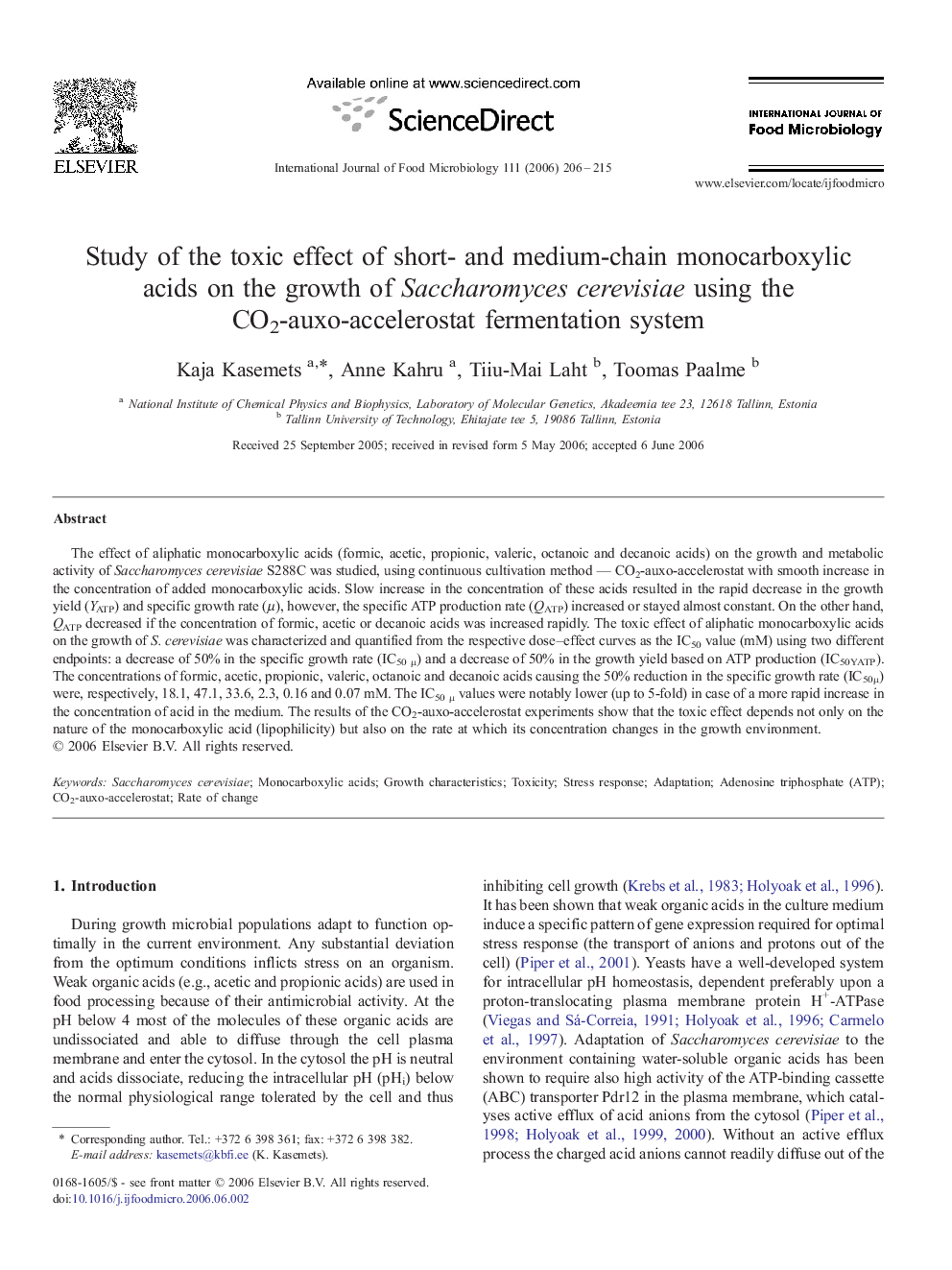| Article ID | Journal | Published Year | Pages | File Type |
|---|---|---|---|---|
| 4370131 | International Journal of Food Microbiology | 2006 | 10 Pages |
The effect of aliphatic monocarboxylic acids (formic, acetic, propionic, valeric, octanoic and decanoic acids) on the growth and metabolic activity of Saccharomyces cerevisiae S288C was studied, using continuous cultivation method — CO2-auxo-accelerostat with smooth increase in the concentration of added monocarboxylic acids. Slow increase in the concentration of these acids resulted in the rapid decrease in the growth yield (YATP) and specific growth rate (μ), however, the specific ATP production rate (QATP) increased or stayed almost constant. On the other hand, QATP decreased if the concentration of formic, acetic or decanoic acids was increased rapidly. The toxic effect of aliphatic monocarboxylic acids on the growth of S. cerevisiae was characterized and quantified from the respective dose–effect curves as the IC50 value (mM) using two different endpoints: a decrease of 50% in the specific growth rate (IC50 μ) and a decrease of 50% in the growth yield based on ATP production (IC50YATP). The concentrations of formic, acetic, propionic, valeric, octanoic and decanoic acids causing the 50% reduction in the specific growth rate (IC50μ) were, respectively, 18.1, 47.1, 33.6, 2.3, 0.16 and 0.07 mM. The IC50 μ values were notably lower (up to 5-fold) in case of a more rapid increase in the concentration of acid in the medium. The results of the CO2-auxo-accelerostat experiments show that the toxic effect depends not only on the nature of the monocarboxylic acid (lipophilicity) but also on the rate at which its concentration changes in the growth environment.
